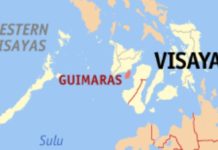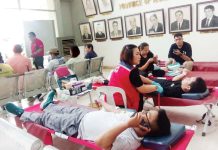OVER the past year, the country has been visited by a series of outbreaks of vaccine-preventable diseases like measles, dengue and polio. Cases of another vaccine-preventable disease, diphtheria, have been confirmed by the Department of Health recently.
In these health challenges, barangay health workers play an important role. They are the primary healthcare providers in communities. Their services include maternal, newborn and child healthcare; health and nutrition education; family planning services; and promotion of good hygiene and sanitation practices. In barangay health centers, they assist and support to physicians, nurses, and midwives.
But despite the significant role of barangay health workers, their work is primarily anchored on volunteerism and many do not receive remuneration. In 1995, Republic Act 7883 (Barangay Health Workers and Benefits and Incentives Act of 1995) sought to provide incentives to them in recognition of their services. It specified that BHWs are entitled to hazard and subsistence allowance; trainings, civil service eligibility, free legal services, and access to loan services. However, it did not provide fixed rates for allowances, and local government units vary in the rates and benefits they provide. Consequently, many BHWs become underpaid and receive far less than what their other counterparts get.
Here’s one good news. Senate Bill 261 seeks to amend the Local Government Code – and effectively Republic Acts 6942 (Increasing Insurance Benefits of Local Government Officials Act of 1990), and 7883 – to expand the coverage of benefits and incentives for barangay officials to include barangay health workers, who provide health-care services and serve as health educators. In this measure, barangay health workers will enjoy the same benefits and incentives as other barangay officials.
Barangay health workers are our front-liners for health, but they are behind in benefits and incentives. When their work conditions are okay, our health conditions will be better. They are crucial to ensure that people in different parts of the country, including in remote, underserved areas, can avail themselves of proper medical attention. Moreover, BHWs fill the gap brought about by the dwindling number of health workers in the Philippines due to continued migration of nurses and doctors for better opportunities abroad.
Ensuring remuneration of barangay health workers is part of the vision to provide universal healthcare access to all Filipinos. It is also consistent with the government’s duty to protect and promote the health of its citizens.





